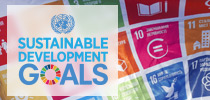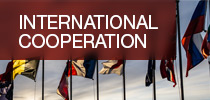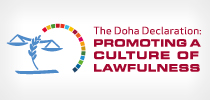Stories from UNODC Southern Africa
Mozambique and Zimbabwe Trafficking in Persons Amendment Bill & Implementing Regulations Closed Legislative Drafting Work Session
|
|
|
Pretoria, 8 February 2019 - UNODC, as part of increasing technical assistance, runs a SADC regional TIP project to support countries that have enacted specific counter Trafficking in Persons legislation in the last several years, in order to remain responsive to the ever-evolving nature of TIP, in line with the Palermo Protocol and the realities and the challenges faced on the ground in implementation. On the request of the Governments of Mozambique and Zimbabwe, UNODC convened legal experts from the two countries for a closed legislation drafting session in Pretoria from 4-8 February 2019 . Delegates consisted of focal points from the Mozambique Attorney Generals' Office and Ministry of Justice, as well as focal points from the Zimbabwe Ministry of Home Affairs, Attorney General's Office, and the Anti-Trafficking Inter-Ministerial Committee.
Trafficking in Persons is a complex phenomenon that requires States to legislatively arm themselves to confront it as a serious crime, which is committed by criminals and perpetrated against victims. Several United Nations Conventions and Instruments - with the Protocol to Prevent, Suppress and Punish Trafficking in Persons, Especially Women and Children, supplementing the United Nations Convention against Transnational Organized Crime at the forefront - require the implementation of laws which can properly respond to trafficking, in a nuanced and effective way as the crime is complex and injurious.
In the Southern African Development Community (SADC), one unique TIP trend that stands out in the region is that human trafficking convictions remain low, only one hundred and one (101) over a period of 3 years, meaning, an average of 2 convictions per country per year in the region. Hence, strengthening legislation, inter-state cooperation, building and sharing of expertise in investigating, prosecuting and adjudication of TIP are crucial.
The objectives of the workshop were:
- To finalize Zimbabwe's draft Trafficking in Persons Amendment Bill
- To prepare Zimbabwe's draft Trafficking in Persons Implementing Regulations
- To develop the first draft of Mozambique's Trafficking in Persons Amendment Bill
- To prepare the first draft of Mozambique's Trafficking in Persons Implementing Regulations
During the opening of the workshop, Ms. Samantha Munodawafa, UNODC Crime Prevention and Criminal Justice Officer, said that "the successful prosecution of traffickers and compensation of victims can only be brought about by laws and regulations which have effectively criminalized all elements of trafficking in persons, in accordance with Article 5 of the TIP Protocol". She went on to say that "the intricate interplay of elements requires that laws be broad enough to cover the varied ways in which people are being exploited, while simultaneously being specific enough to address the often-convoluted process of trafficking".
One of the proposed amendments to both the Zimbabwe and Mozambique TIP legislation was a proposal to include the establishment of TIP Victim Compensation Funds, which would seek to compensate victims of trafficking in persons. Furthermore, a decision was taken that both Zimbabwe and Mozambique will convene validation workshops in their respective countries with relevant stakeholders before the legislation and implementing regulations are adopted by the trafficking in Persons coordinating structures of each country and then presented to their respective TIP implementing ministries.
Stories from UNODC
- 2025-04-14 11:27:20.0 - Investing in child protection as a priority: Brazil launches the first-ever national strategy to protect children from violence, crime and drugs
- 2025-04-11 13:46:31.0 - Promoting peace, social reintegration and drug prevention through boxing in Mexico
- 2025-04-04 16:14:10.0 - Get back up and try again: the power of sports in violence and crime prevention
Press Releases
- 2025-04-07 08:55:48.0 - UNODC: new study shows forest crime converging with other types of organized crime, fueling harms to the environment, communities, and economy
- 2025-03-12 11:30:14.0 - UNODC: Opium prices in Afghanistan near historic peaks, mostly benefiting large-scale traffickers
- 2025-03-05 09:55:22.0 - UN Office on Drugs and Crime and Zero Project/ Essl Foundation announce new partnership for people with disabilities








